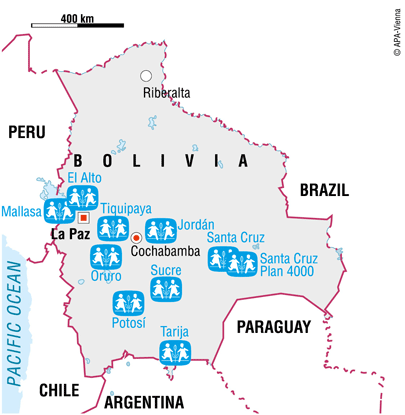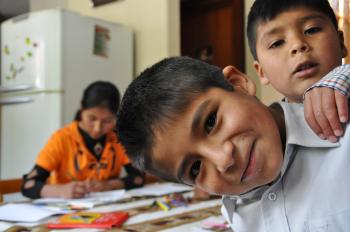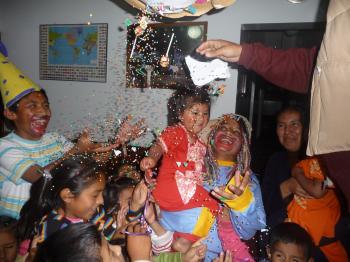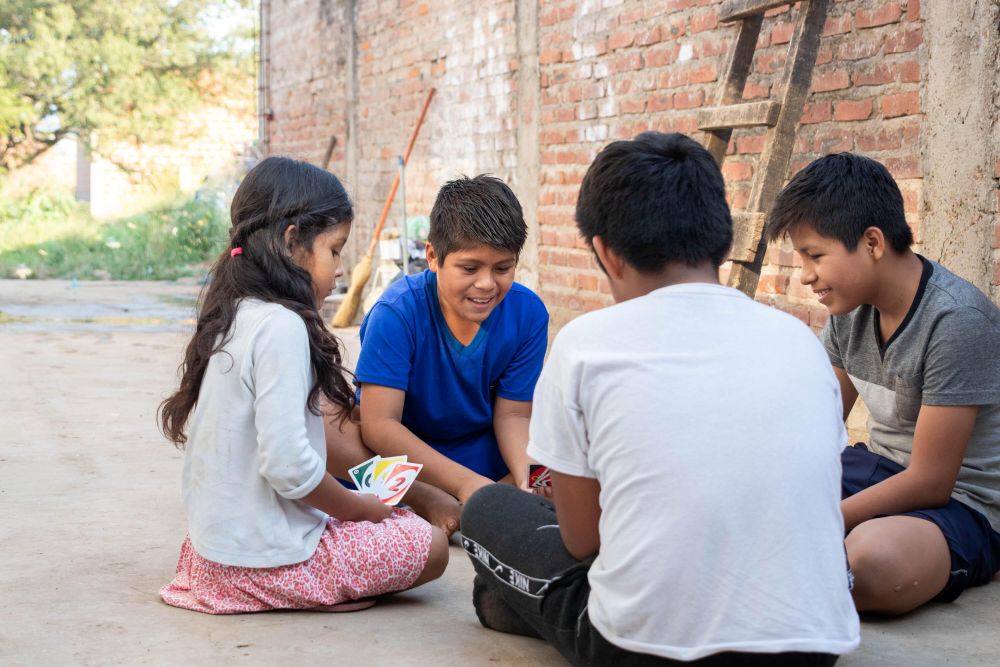
Vi er i Bolivia
An increase in the number of people living in cities

The Plurinational State of Bolivia is the Latin American country with the third largest population segment comprised of Amerindians. In addition to Spanish, Quechua, Aymara and various other indigenous languages have official status. The total population of Bolivia amounts to roughly ten million. Demographically speaking, Bolivia is a very young country. Nearly 30 per cent of all its citizens are less than 14 years old.
While Sucre is the country's official and constitutional capital, La Paz is the second most populous city of Bolivia and the de facto seat of the Bolivian government. A major part of Bolivia's population lives in rural areas. However, over the past decades Bolivia has been marked by the phenomenon of urbanisation: for economic reasons, many Bolivians leave impoverished rural zones and move to the dynamic, urban centres – many of them in search of work and better living conditions.
In spite of recent progress, high levels of poverty remain
Literacy rates, malnutrition figures and primary school enrolment have improved significantly over the past decades and particularly over the past few years. But despite recent economic growth and socioeconomic progress, Bolivia remains one of the poorest countries in Latin America. Indigenous and rural populations are especially vulnerable, mainly due to their historic exclusion from political and economic power. In Bolivia, inequality is the main cause of social problems: the country is among the five most unequal countries in the region. The wealthiest ten per cent of Bolivians control roughly half the country's income. At the same time, the share of income held by the bottom ten per cent amounts to only one per cent.
Although poverty figures vary slightly depending on how it is measured, an estimated 38 per cent of Bolivia's population live below the national poverty line. Extreme poverty has decreased significantly over the past few years. Nonetheless, in rural areas it is still at a staggering 63 per cent. In Bolivia, roughly one quarter of the population consumes less than the daily minimum calorie intake.
More needs to be done to protect children
-57720_JPG.jpg?width=800)
Since 2005, the number of children who drop out of primary school has more than halved, primarily owing to greater government efforts and well-conducted programmes. Nonetheless, particularly in rural areas, the difficulties of access to school education remain a serious problem. To experience poverty during childhood has a substantial impact on a child's adult life. Very often, the disadvantages faced during early childhood result in subsequent economic failure or a lack of personal success later in life.
A culture of respect for the rights of a child has not been fully established yet in Bolivian society. Children are often perceived as the property of their parents. Physically punishing children to discipline them and make sure they respect their parents is widely accepted in Bolivian families. The government of Bolivia signed the Convention on the Rights of the Child (CRC) in 1990. However, roughly 28 per cent of Bolivian children aged 5 to 15 actively engage in work activities.
In the Bolivian zinc and silver mines of PotosÃ, it seems that childhood is a luxury that many families just cannot afford. According to the United Nations Development Programme, roughly ten per cent of all Bolivian miners are underage. Their lungs are permanently exposed to dust and toxic fumes. Even for adults, the physical stress in the mines is tremendous. Consequently, Bolivian miners have an average life expectancy of only 40 years.
SOS Children's Villages in Bolivia
At present, SOS Children's Villages is supporting Bolivian children, young people and families by providing:
Family strengthening: The SOS Family Strengthening Programmes provide much needed support to families who are at risk of breaking down. We work directly with families and communities so that they can protect and look after their children.
Care in families: Children whose parents cannot take care of them will find a loving home in one of the SOS families in one of the ten SOS Children's Villages. The children grow up with their brothers and sisters in SOS families.
Training and support for young people: The high unemployment rate makes it difficult for young people to become independent. The SOS Youth Programmes help young people gain further training and supports them while they look for work.
Advocacy: We work closely with other care organisation and public authorities to raise awareness of children's rights
Emergency assistance: In early 2014, flooding in the Beni department affected 16,000 families. In collaboration with other organisations, we opened three emergency childcare centres that cared for over 420 children.
Website of SOS Children's Villages Bolivia
(available in Spanish)
